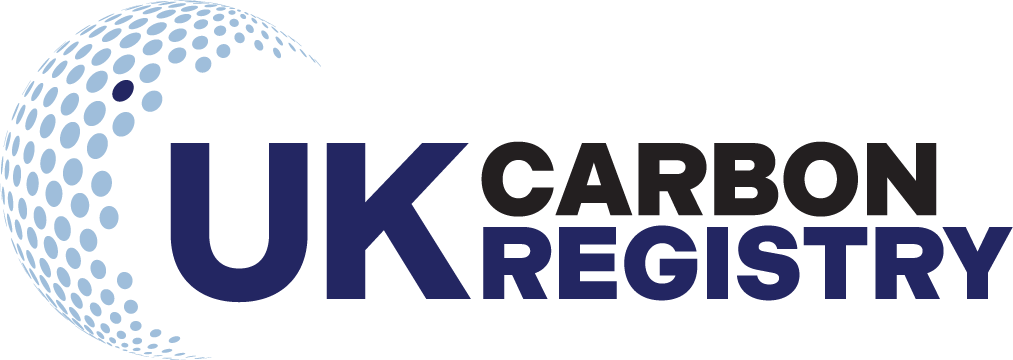UKCR Program Guidelines
Overview
In light of urgent global concerns surrounding climate change, an increasing number of corporate entities and organizations are looking to carbon markets as a powerful solution. As these carbon markets grow at a rapid pace, it becomes essential to establish clear processes that guarantee the reliability and integrity of carbon credits issued by projects.
UK Carbon Registry (UKCR), engaged in supporting current climate solution as the first UK based carbon registry, with a strong emphasis on science, technology, engineering, and mathematics (STEM) projects. Our core mission is to provide exceptional services and expertise within the sphere of carbon markets and carbon credit issuance. At UKCR, we are dedicated to empowering STEM-driven corporations by offering them an exclusive opportunity to create, retain, and engage in carbon credit transactions through our advanced Registry Platform.
Our eligible STEM initiatives span a wide range of projects, including solar energy installations, electric vehicle charging infrastructure, water purification systems, waste management endeavors, and wind energy farms. This page offers an overview of UKCR's processes for onboarding carbon projects and issuing carbon credits, ensuring transparency and credibility in the ever-evolving landscape of climate action and carbon markets.
UKCR Structure and Governance: Ensuring Trust and Reliability
UK Carbon Registry (UKCR) boasts its best-in-class services through a robust structure and governance system designed to uphold the highest standards of safety, regulatory compliance, and corporate integrity. Our commitment to transparency and credibility begins with the very foundation of our organization.
- The UK-based Governance: UKCR's governance is strongly embedded in the United Kingdom. This strategic choice is driven by the country's well-established legal system, rigorous regulatory framework, and sound corporate structure. Operating within the UK ensures that UKCR adheres to the highest standards of business ethics and legal compliance, offering a sense of security and trust to all stakeholders.
- UNFCCC and CDM: UKCR is dedicated to following the guidelines, methodologies, and required standards set forth by the Clean Development Mechanism (CDM) developed under the United Nations Framework Convention on Climate Change (UNFCCC). This alignment ensures that our projects follow rigorous procedures set by the global community, ensuring High Integrity Carbon Projects.
- ISO14064 Standards: UKCR is also committed to the ISO-14064 standard, encompassing parts 1-3. These standards provide a comprehensive framework for the quantification, monitoring, reporting, and verification of greenhouse gas emissions and removals. By adhering to ISO-14064, we ensure the establishment of high-integrity carbon projects, bolstering their credibility and effectiveness.
- Onboarding Projects:
Our meticulous onboarding process for carbon projects is designed to uphold the integrity and reliability of the carbon credits we issue. We collaborate closely with Project Proponents to assess their initiatives, ensuring they align with our stringent criteria. Through this careful evaluation, we identify projects that not only contribute to GHG emission mitigations but also adhere to the highest environmental and ethical standards.
STEM-Based Projects
UKCR is inclined to offer high-integrity Carbon Projects through the on-boarding and registration of STEM based Carbon Projects. UKCR exclusively registers STEM oriented projects capable of issuing UKCR Carbon Credits through the use of STEM focused implementation.
STEM-based carbon projects require a significant application of Science, Technology, Engineering, and Mathematics (STEM) principles and practices to address carbon emissions mitigation, and the overall management of greenhouse gases (GHGs).
These projects encompass STEM focused tools to offer an innovative approach to climate change and to promote sustainability. Common STEM-based Carbon Projects may include the use of:
- Carbon Capture and Storage Technologies
- Renewable Energy implementations
- Energy Efficiency Initiatives
- Climate Modelling and Simulation Tools
- Smart Grid and Grid Integration
- Carbon Footprint Assessments
- Climate Adaptation and Resilience Projects
- Green Transportation Technologies
- Carbon Data Management and Reporting
- Waste-to-Energy technologies
STEM Monitoring
Furthermore, UKCR imposes the implementation of STEM based monitoring practices. It is the Project Proponent’s responsibility to use relevant practices to ensure accurate, consistent and relevant of the projects GHG emissions removal.
Setting Up a Carbon project
Initial Consultancy
The initial consultancy phase is designed to provide Project Proponents with insightful information, guidance and alignment. This stage shall focus on engaging with our experts either via email or zoom to clarify any doubts and ensure that your Project Activity aligns with the specific requirements and specifications outlined by the UKCR. It is a crucial step to establish a solid foundation for the project's development.
Registration
After receiving an approval during the initial consultancy, the next step of starting your project is the registration. This process involves creating an account with the UKCR, which will serve as your centralized platform for managing and tracking the progress of your Project Activity. The registration shall mark the formal beginning of your journey within us at the UKCR Registry.
Project Initiation Form
The Project Initiation Form shall serve as the foundational document for your Project Activity. By completing this form, you will capture essential details about your project, including its objectives, scope, and initial plans. While not as in-depth as the Project Design Document (which will be explained shortly), the Initiation Form is a critical starting point that sets the stage for more detailed documentation. Once submitted, the Project Initiation Form shall be reviewed by one of our experts. The Project Activity must then be approved to move to the next stage of development. Our UKCR experts may at any time request that clarifications/amendments are brought to the Project Initiation Form in order to move to the next phases of the Project. UKCR may also in its total discretion, refuse to accept a project.
The Main Documentation of your project
The Project Design Document (PDD) is the main document of your Project Activity, offering a comprehensive blueprint for its development. Within this document, you must outline the project's overarching purpose, delve into its intricate methodologies, and lay out the expected outcomes in the context of carbon reduction or removal.
Crucially, the PDD serves as the linchpin for project assessment, enabling verification that your project is performing in alignment with its intended goals. It is indispensable that the PDD adheres to the rigorous standards laid out in ISO 14064 parts 1-3, and incorporates any relevant criteria from the Clean Development Mechanism (CDM) or the UKCR Registry platform.
The PDD plays a pivotal role in determining your project's eligibility for Carbon Credits, which are pivotal for its financial sustainability. By quantifying expected outcomes, the PDD provides a solid framework for measuring success. Moreover, it ensures that your project operates in harmony with global environmental standards, thereby making a significant contribution to both environmental preservation and economic viability.
Methodology Development
While the Methodology Document is optional, it becomes crucial and mandatory when your project lacks an existing methodology for assessing Additionality or quantifying greenhouse gas emission removal. In such cases, you are responsible for drafting a new methodology that meets the necessary criteria of your project.
Additionally, you must secure verification and validation certifications from UKCR-approved Verification and Validation Bodies (VVBs) to ensure the credibility of your methodology.
Monitoring Schedule/Report
A monitoring schedule is a fundamental aspect of project development, as it precisely outlines when and how data will be collected and reported on your project's performance. The monitoring schedule is typically integrated into the PDD and does not require separate validation or verification processes. However, in specific scenarios where a project employs new technologies or presents a high risk of significantly altering baseline scenarios and other elements outlined in the PDD, a separate Monitoring Report is strongly advised.
This report will undergo thorough verification and validation procedures, ensuring that any modifications to the project are accurately documented and assessed.
These elements state above collectively contribute to the successful development of a carbon project within the UK Carbon Registry, ensuring the compliance with rigorous environmental standards and paving the way for the generation of carbon credits and the promotion of sustainable practices.
Verification and Validation report and audits
Once your Project Design Document (PDD) and supporting documentations are complete, the critical phase of verification and validation audits commences, led by our accredited Verification and Validation Bodies (VVB). These audits are indispensable steps in the process of earning carbon credits.
Validation is the initial checkpoint, a one-off process, unless there is a material change to the PDD. During validation, an independent VVB scrutinizes your project to ensure that it adheres to the stringent criteria outlined in your PDD. This step is the 'green light,' confirming that your project is well-founded, environmentally sound, and aligns with the stated objectives.
Verification, on the other hand, is an ongoing process conducted at frequent intervals. It involves periodic assessments by VVBs to verify that your project continues to operate as initially validated. Verification checks that your project maintains its intended environmental impact and adheres to the methodologies and standards defined in the PDD.
Verification and validation are pivotal because they provide the assurance that carbon projects deliver the promised environmental benefits. These audits ensure transparency, accountability, and credibility, essential for carbon market integrity. They help prevent double-counting, verify emissions reductions or removals, and ensure that projects genuinely contribute to addressing climate change.
Verification and Validation are the gateways to issuing carbon credits. Without them, the environmental impact of a project cannot be confirmed. By undergoing these audits, you demonstrate your project's commitment to transparency and accountability. The credits issued following successful verification provide tangible evidence of your project's contributions to mitigating climate change. These credits can then be traded, sold, or used to offset emissions, driving sustainability efforts and encouraging further investment in carbon reduction or removal projects.
Issuance of the credits
Once all relevant documents, including the Project Design Document (PDD), Methodology, and Monitoring Report, have been successfully validated, each subsequent verification enables the project proponent to issue the predetermined carbon credits as specified in the verified documentation. These carbon credits represent a quantified reduction in greenhouse gas emissions achieved by the project, and their issuance is contingent upon the confirmation of emission reductions during the verification process. This system ensures transparency and accountability in carbon offset projects by providing a mechanism for generating and trading carbon credits based on actual emission reductions.

